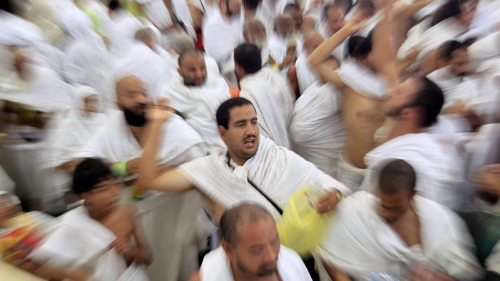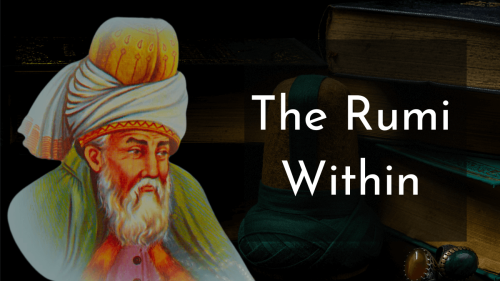On Love and the Mystery of Being Human

No one can argue that love is quintessential of being human. Without love, life becomes empty and meaningless. The word “love” is very comprehensive. People associate the word “love” with almost anything ranging from physical to metaphysical, from temporal to spiritual. What does love mean and is it possible to define it? How does one differentiate between real love and superficial love? And why is real love essentially disappearing from modern society?
Although humanity’s yearning for love remains forever strong, most people find it rather elusive. “The paradoxical situation, with a vast number of people today, is that they are half asleep when awake, and half awake when asleep,” notes Erich Fromm, the famous psychoanalyst in his book, The Art of Loving. He tries to diagnose this paradoxical problem thus: “Modern man is alienated from himself, from his fellow man, and from nature... Human relations are essentially those of alienated automatons, each basing his security close to the herd… While everybody tries to be as close as possible to the rest, everybody remains utterly alone… Man’s happiness today consists in ‘having fun.’ Our character is geared to exchange and to receive, to barter and to consume. Everything, spiritual as well as material objects, becomes an object of exchange and consumption… Automatons cannot love; they can exchange their ‘personality packages’ and hope for a fair bargain.”
Is there a way out of this modern predicament? Fromm digs deeper and tries to find a solution:
“While life in its merely biological aspects is a miracle and a secret, man in his human aspects is an unfathomable secret to himself and his fellow man. We know ourselves, and yet even with all the efforts we may make, we do not know ourselves. We know our fellow man, and yet we do not know him, because we are not a thing, and our fellow man is not a thing. The further we reach into the depth of our being, or someone else’s being, the more the goal of knowledge eludes us. Yet we cannot help desiring to penetrate into the secret of man's soul… But inasmuch as the desire is to know all of man, and his innermost secrets, the desire can never be fulfilled in knowledge of the ordinary kind, in knowledge only by thought… It is assumed that I can know God in my thought. In mysticism… the attempt is given up to know God by thought, and it is replaced by the experience of union with God in which there is no more room – and no need – for knowledge about God… It is the knowledge that we shall never “grasp” the secret of man or the universe, but that we can know [this secret], nevertheless, in the act of love.”
What then is an “act of love” and how can it best be practiced? Fromm asserts:
“Love is an activity, not a passive affect; it is a ‘standing in,’ not a ‘falling for.’ In the most general way, the active character of love can be described by stating that love is primarily giving, not receiving.”
He further states that the act of love requires care, responsibility, respect and knowledge; that the loving person should ever remain “in a constant state of awareness, alertness, activity.”
As for God, how do we love Him and in what way does He love human beings? And how is “union with God” achieved? These are questions that have consumed the best minds of all ages and cultures. As for not being able to know God by thought, Fromm only echoes the words of the Qur’an which states that humans cannot comprehend God (6:104) and that no example can be given of Him (42:11). How can a finite being comprehend an infinite being? How then do we love God and achieve “union with Him” whom we can neither comprehend nor give example of. It is impossible to love something or to achieve “union with it” if it is unseen, imperceptible, or incomprehensible. One can have deep respect for some abstract realities or metaphysical concepts, but we cannot term that as love.
We are indeed fortunate that God sent His Prophets to teach us how to love God and how to achieve “union with Him.” The Arabic word Al-‘Hubbu (root ‘h-b-b) has many meanings but these four are most important: 1) to hold onto something steadfastly; 2) to appear as the result of an action, like the appearance of grain budding within a well-tended plant; 3) to like and to love someone; and 4) to protect someone.
In the light of the above, our love of God means to hold steadfastly onto His Book (Al-Qur’an), i.e., to follow and obey it. That is why the Qur’an has been called the rope of Allah and we have been asked to hold onto it steadfastly and to aspire to achieve “union with Him” (3:102). For Muslims there is no other way to achieve this union except through the Qur’an. And God’s love towards human beings, once again according to the above root meanings, is that He will protect them, will support them, and will bring to fruition results of their actions. “Say [O Prophet]: If you love God, follow me, [and] God will love you and forgive your sins; for God is much-forgiving, a dispenser of grace” (3:31); “God loves the doers of good deeds” (2:195) [Asad].
Following the Prophet (PBUH) means to follow Allah (4:80) and his guidance. In following the Qur’an, we reflect our love for Allah which implies, in return, that He loves us and thus we achieve “union with Him.” This means that the love of God is not restricted to a personal realm but is inseparably connected with the social realm.
Eric Fromm concludes his reasoning by stating, in essence, what the Qur’an proclaimed 1400 years ago: “Those who are seriously concerned with love as the only rational answer to the problem of human existence must, then, arrive at the conclusion that important and radical changes in our social structure are necessary if love is to become a social and not a highly individualistic, marginal phenomenon… To analyze the nature of love is to discover its general absence today and to criticize the social conditions which are responsible for this absence. To have faith in the possibility of love, as a social and not only an exceptional individual phenomenon, is a rational faith… based upon insight into the very nature of man.”

















